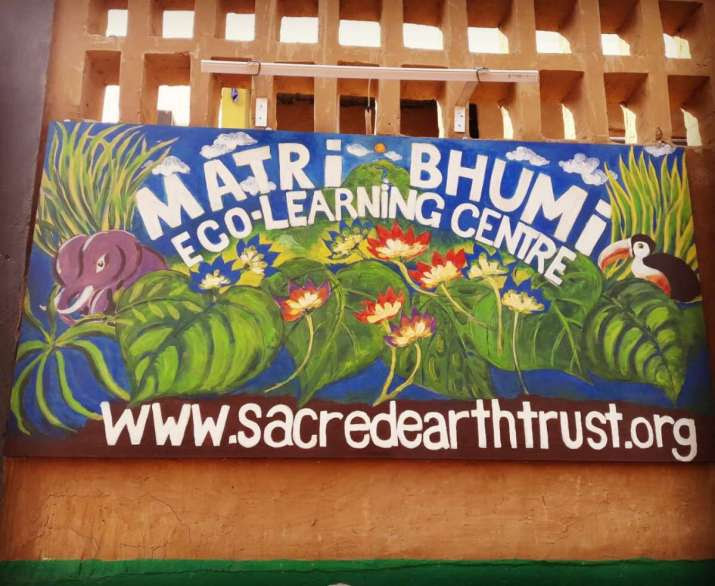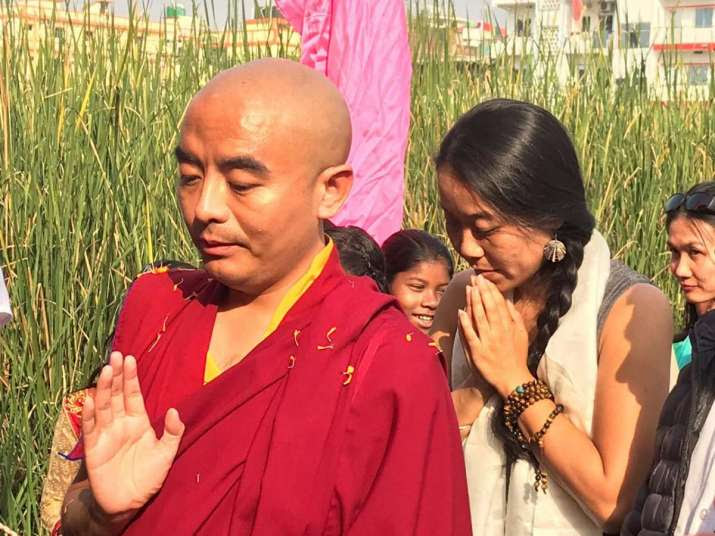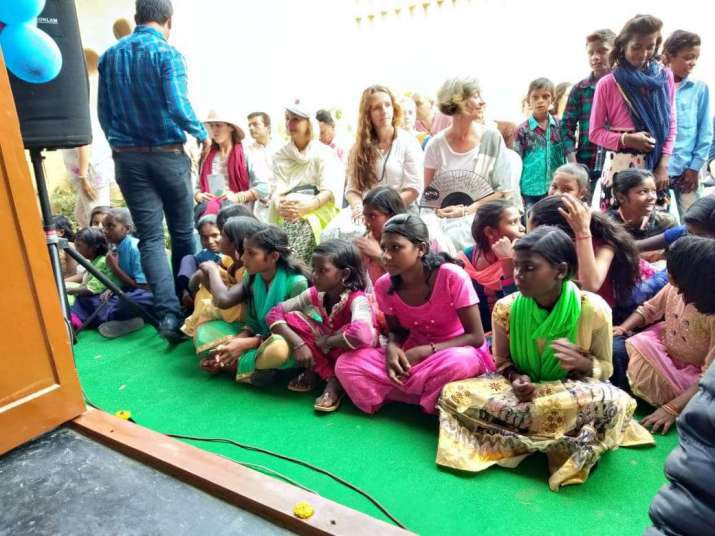By Shyamal Sinha

Sacred Earth Trust works to tackle the environmental issues plaguing Bodhgaya with local and international organizations. Our goals are to identify and develop sustainable solutions, empower the local community through knowledge and transference of skills, and to engage the local community in implementing practical solutions to solve Bodhgaya’s ecological problems.
The Matri Bhumi Eco-Learning Centre opened in Bodh Gaya this month with an inauguration on 14 November that was attended by Yongey Mingyur Rinpoche, Nangzey Dorjey of the Bodh Gaya Temple Management Committee, and Sister Shobha of Carmel High School.
International and local guests attended the inauguration, including young women and schoolgirls who will benefit from the activities and education programs the center will provide.
The Matri Bhumi Eco-Learning Centre is a project by the Sacred Earth Trust (SET), a Bihar-based non-profit focused on education and sustainability in the heartland of Buddhism. Since its founding in 2009, its major objective has been to focus on reducing plastic pollution through teaching sustainability and up-cycling. The SET has engaged in teacher training, permaculture courses, women’s empowerment sewing projects, building female toilets, and tree planting around Bodh Gaya.
Throughout its decade of educational activities, outreach projects, and the development of the Matri Bhumi Eco-Learning Centre, the SET has been supported by individuals and organizations such as the UN Development Program, Global Environmental Facility, and the Centre for Environmental Education in New Delhi.

The inauguration also held a live demonstration of making plastic blocks and affordable earthquake-resilient technologies. Workshops were also given on bamboo earth, “earth-bags” construction, zero-waste solutions, water filtration systems, less wasteful irrigation techniques, and gardening.
“The next phase will be to engage local schools and teachers in environmental education focusing on disseminating knowledge on practical solutions through creative learning workshops,” said Lillian. “Our trust also hopes to develop an online portal to engage and link local communities and schools. We need to recruit specialists in various fields of ecology and solutions based approaches for dialogue. We plan to host even more workshops to explore expertise and solutions for the practical development of surrounding communities around Bodh Gaya.”
“The activities we host at our Eco-Learning Centre are worthy exercises in mindfulness about the needs of nature and the underprivileged in Bodh Gaya, Bihar, and beyond,” she explained. “They address how we can be part of a virtuous cycle of cause and effect for our actions, and how we can transform from harming the planet to being of benefit to ourselves, others, and future generations. The planet’s pollution and climate change issues require a multi-level approach to be effectively ameliorated. Finally, as a Buddhist community we can be proactive and collaborate with non-profits and social entrepreneurships to reduce and eventually neutralize local sources of pollution.”

Bihar is the most recent state in India to become plastic free, and from 14 December it will become a criminal offence to use disposable plastics such as bags, straws, and cups. Lillian has also invited organizations to partner with Sacred Earth Trust.
“Soon, on multiple platforms, we will be sharing with a wider audience ecologically sustainable solutions which can be adopted on a small and local scale,” she said. “We welcome collaboration and partnerships to work with us to transform Bodh Gaya.
SET wants to help make Bodhgaya food secure by enhancing the local economy and encouraging farmers to sell their biodiverse products to the local community.











